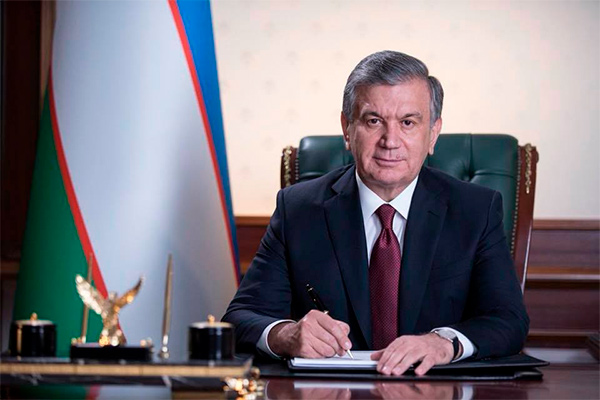
Uzbekistan slashes number of ministries, executive bodies

TASHKENT: The number of executive bodies in Uzbekistan will be reduced from 61 to 28 and the number of ministries will be cut from 25 to 21 while 20 bodies will be abolished starting January 1.
In his December 20 address to Parliament, President of Uzbekistan Shavkat Mirziyoyev proposed administrative reforms to transform the activities of the government, ministries and khokimiyats (municipal governments), UZ Daily reported.
He signed a decree on measures to carry out administrative reforms and a resolution for the effective implementation of the decree.
All ministries will reduce their staff by 30%. The executive branch will consist of ministries, committees, agencies and inspectorates.
Of the current eight deputy prime ministers and three advisers to the prime minister, only four deputy prime ministers will remain in government.
Out of the existing 269 staff, 120 staff will remain in the executive structure of the Cabinet of Ministers. At the same time, some departments, divisions and inspections will be removed.
Within the structure of the Cabinet of Ministers, the Secretariat of the Prime Minister is being created, which ensures the legal, organizational, technical, informational, analytical and protocol activities of the head of government.
The political status, powers, political responsibility and accountability of ministers to the President, Parliament and the public are sharply increasing. Ministers will independently distribute the allocated funds and they get the right to independently determine the structures of the ministry.
The functions of ministries and departments will be reviewed and duplication will be reduced. State functions transferred to the private sector will be increased by at least three times.
The President of Uzbekistan will determine the target indicators of each ministry for the coming year.
At the beginning of each year, ministers will prepare and present to the public an action plan to achieve the targets.
Government agencies will introduce “online appointments” and “virtual visits” technologies to reduce costs, as well as use modern technologies to reduce energy consumption.
The 21 ministries of the cabinet are Ministry of Investment, Industry and Trade; Ministry of Economy and Finance; Ministry of Mining Industry and Geology; Ministry of Construction and Housing; Ministry of Poverty Reduction and Employment; Ministry of Higher Education, Science and Innovation; Ministry of Preschool and School Education; Ministry of Natural Resources; Ministry of Youth Policy and Sports; Ministry of Agriculture; Ministry of Water Resources; Ministry of Digital Technologies; Ministry of Justice; Ministry of transportation; Ministry of Culture and Tourism; Ministry of Defense; Ministry of Energy; Ministry of Healthcare; Ministry of Foreign Affairs; Ministry of Internal Affairs; and Ministry of Emergency Situations.


